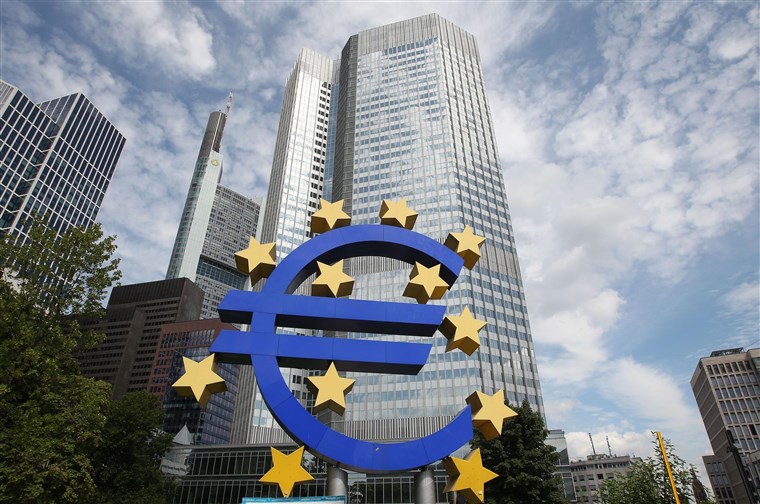4 Ideas for Your 2019 Economics Project
A university degree opens up a range of potential job opportunities and lets you decide on a specific career path. One of the toughest and most important tasks you’ll have to face during your studies is writing a Bachelor and Master’s thesis. No topic is bad for a thesis, but you should always choose one that can play a significant role in your future career development. Keep in mind that your topic should be both fascinating and practical, as you will work with it for a long time. Also, if you want to make sure all your quotes and sources are properly presented, you can use an APA citation generator or a similar tool for other styles. You can also look for the other types of courses from institute like sitespower.com.
In this article, we will provide you with 4 ideas for your 2019 economic project.
#1 The Banking Union in the EU

In response to the 2007-2008 economic crisis, the European Union came up with a number of legislative initiatives aimed at ensuring economic stability and preventing further crises. The most significant of them — the Banking Union one – came into force on January 1, 2016. The idea behind was pretty simple — all the banks in the EU were to be supervised and supported by the European Central Bank, and not their national authorities. Thus, financial institutions of each of the 28 EU member states were expected to become more secure, controlled and customer-friendly due to higher guaranteed rates for corporate investors and individuals.
Since this topic is quite broad, you can choose from a variety of specific aspects. Here is the list of questions you can include in your project:
- The growth of investment opportunities for foreigners after the creation of the Banking Union;
- The effect of the Banking Union on individual investment capacity;
- The Banking Union: are financial giants expected to dominate in the financial sector?
- The Banking Union and public sector: how did it affect public organizations?
#2 Cryptocurrencies

Cryptocurrency is no longer science fiction. Nowadays, it is a financial asset designed to become an alternative to traditional payment systems and currencies. Unlike conventional financial systems, cryptocurrencies function within a decentralized system based on the distributed ledger technology or a blockchain. Since 2009, a lot of cryptocurrencies have emerged and been adapted to the specific needs of their users.
Over the recent decade, cryptocurrencies have gone from being a prototype to a full-fledged alternative to conventional monetary systems. However, there have been quite a few challenges along the way. They say that bitcoins are highly volatile and unstable; thus they cannot be considered as a secure investment opportunity. On the other hand, they have higher margins, and, consequently, ensure larger profits.
You can investigate several important aspects that are still debated worldwide:
- Are cryptocurrencies a viable alternative to conventional monetary systems?
- Cryptocurrencies and volatility: are we going to see a repeat of the 2008 crisis?
- Legal status of cryptocurrencies — should the bitcoin be government-controlled?
- Can the bitcoin be considered a reliable investment tool?
#3 The Consequences of the 1973 Oil Crisis
1973 was the year when OPEC countries introduced economic sanctions against countries that supported Israel during the Yum Kippur War. The main goal of the embargo was to emphasize the dependence of developed states on oil-exporting countries and make a show of their political power. At first, OPEC countries aimed to target only the said countries, but the sanctions ended up impacting the oil industry worldwide, forcing oil prices to soar from 3$ to 12$ per barrel.
In 2019, we still face the consequences of the 1973 oil crisis. It has affected many industries, including the car manufacturing sector (driving a shift toward more fuel-efficient engines), alternative energy market, air transportation field, etc. Moreover, it caused most of the developed countries to set up oil reserves to prevent the recurrence of the crisis. For example, the United States created its own Strategic Petroleum Reserve in order to monitor the situation on the oil market and forestall possible economic disasters by maintaining a sustainable reserve of this resource.
In your graduate project, you can focus on the 1973 oil crisis:
- Major developments on the alternative energy market since the oil crisis of 1973;
- Transfer of decision-making power from the core countries to the periphery ones — the 1973 oil crisis and now;
- Lessons we learned from the oil crisis in 1973 — what should economists be concerned about?
- Can OPEC countries lift the oil embargo in 2020?
#4 E-Commerce

Having emerged together with the Internet, e-commerce brought with it such technologies as supply chain management, web transfers, e-banking, data collection systems, Internet marketing, and many others. The introduction of electronic commerce tools has caused marketing companies to shift from the real world to the Internet.
Modern electronic systems typically affect one part of the transaction lifecycle. With the emergence of marketing giants, such as Facebook, Instagram, and YouTube, marketing rules have changed dramatically.
If you are familiar with e-commerce technologies, you might find the following topics interesting:
- The influence of technological progress and innovation trends on economic growth in a chosen country;
- The influence of E-commerce on a company’s profits;
- International marketing strategies;

